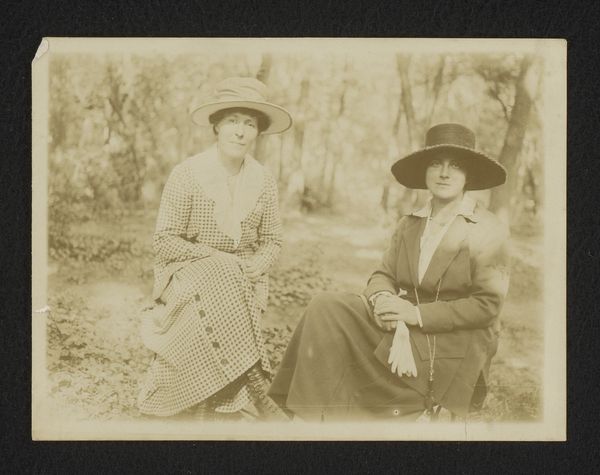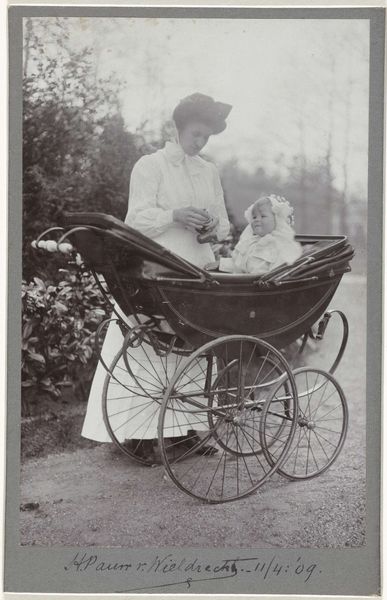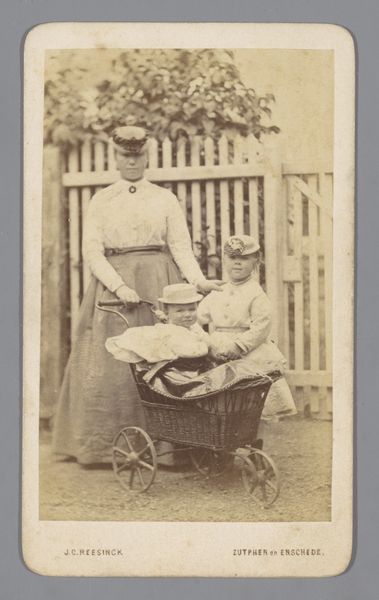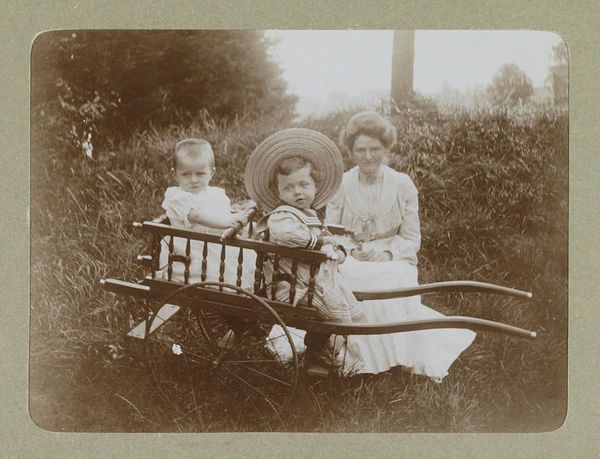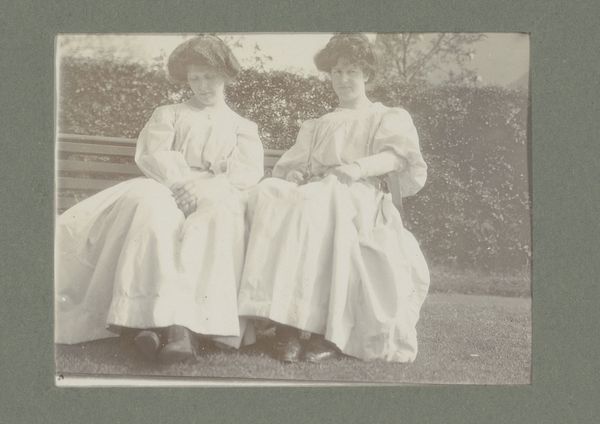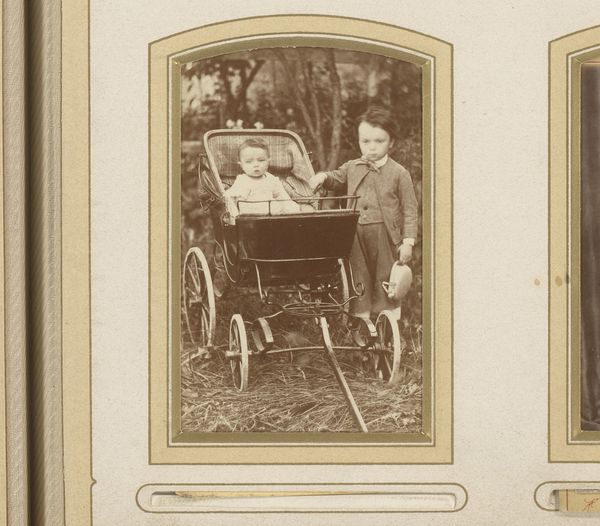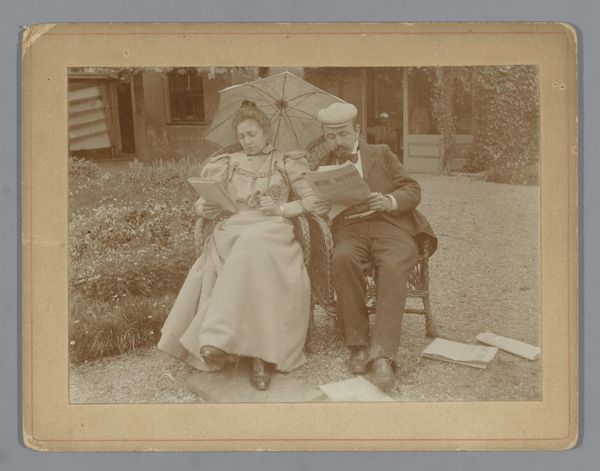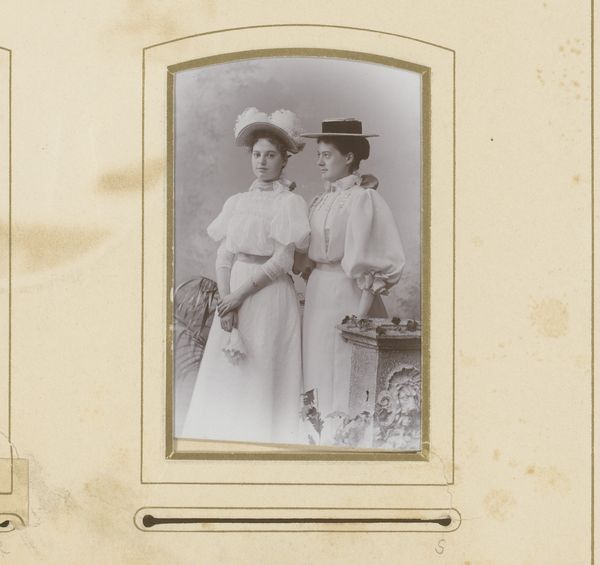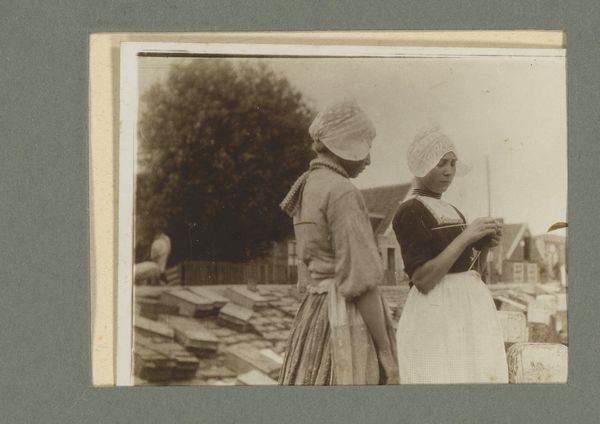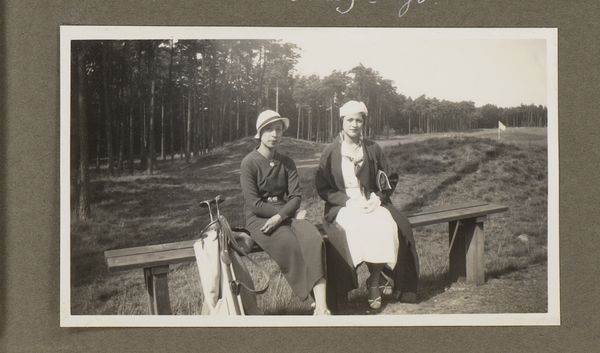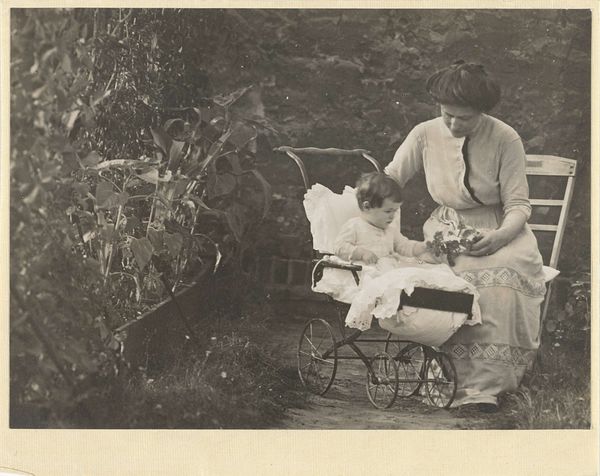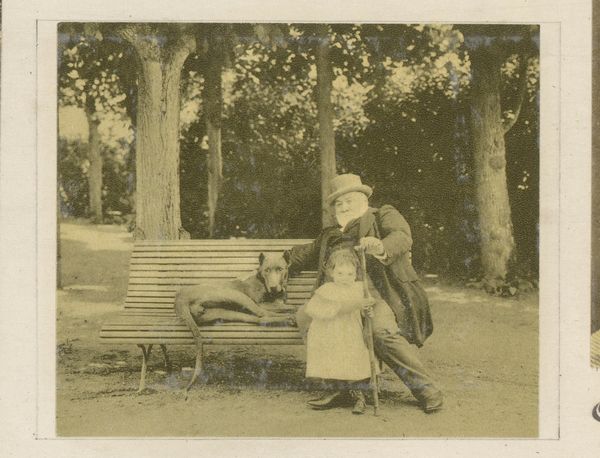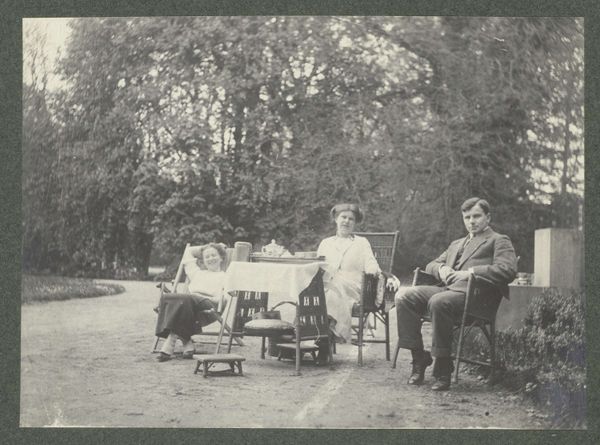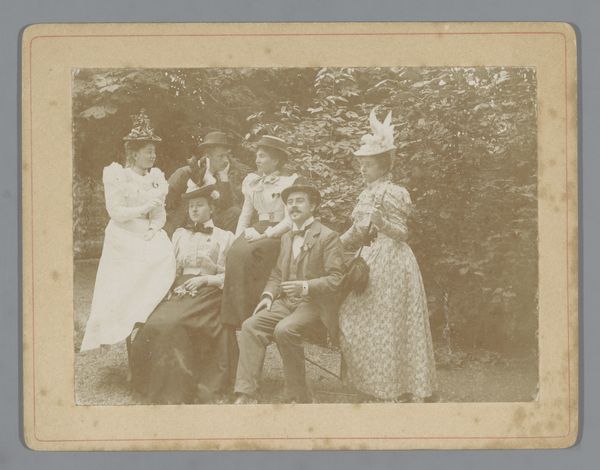
Petronella Bon en Neeltje Scheffer bij een kinderwagen met daarin Daan Scheffer, Mimi en Bertha c. 1912 - 1920
0:00
0:00
photography
#
mother
#
pictorialism
#
photography
#
genre-painting
Dimensions: height 90 mm, width 134 mm
Copyright: Rijks Museum: Open Domain
Editor: So, this is an early photograph, "Petronella Bon en Neeltje Scheffer bij een kinderwagen met daarin Daan Scheffer, Mimi en Bertha," dating from around 1912-1920. The tone is just so lovely, soft and dreamlike... What do you see in this photograph that stands out to you? Curator: Beyond the aesthetic qualities, I see a compelling tableau of women's roles and the societal expectations placed upon them in the early 20th century. What strikes me is the division of labor. Notice the distinct attire and positioning of the women; what could that signify about their relationship to the children, to each other, and to the domestic sphere? Editor: Hmm, it seems that one is taking a more hands-on approach, pushing the stroller, maybe more involved in childcare. While the other one is next to them but perhaps less occupied with them. Is it also relevant that the women are only identified by their first names, while children's first and last names were all registered? Curator: Exactly! The very act of capturing this domestic scene, through the lens of Pictorialism, elevates the everyday. Photography itself was still a developing art form and how fascinating to consider this photographic genre-scene as a commentary on visibility, specifically *who* gets remembered and how their stories get framed in the broader cultural landscape. And in what light! Soft focus tends to 'domesticate' the characters involved... Editor: I hadn't considered that before. So, beyond just being a nice portrait, this image might offer a nuanced social statement through a sophisticated technique? Curator: Precisely. And perhaps it invites us to critically examine the representation of women, domesticity, and the power dynamics inherent in these seemingly ordinary moments. Editor: Thank you; I see that in a very different way now, this everyday family snapshot reveals deeper cultural meaning!
Comments
No comments
Be the first to comment and join the conversation on the ultimate creative platform.
